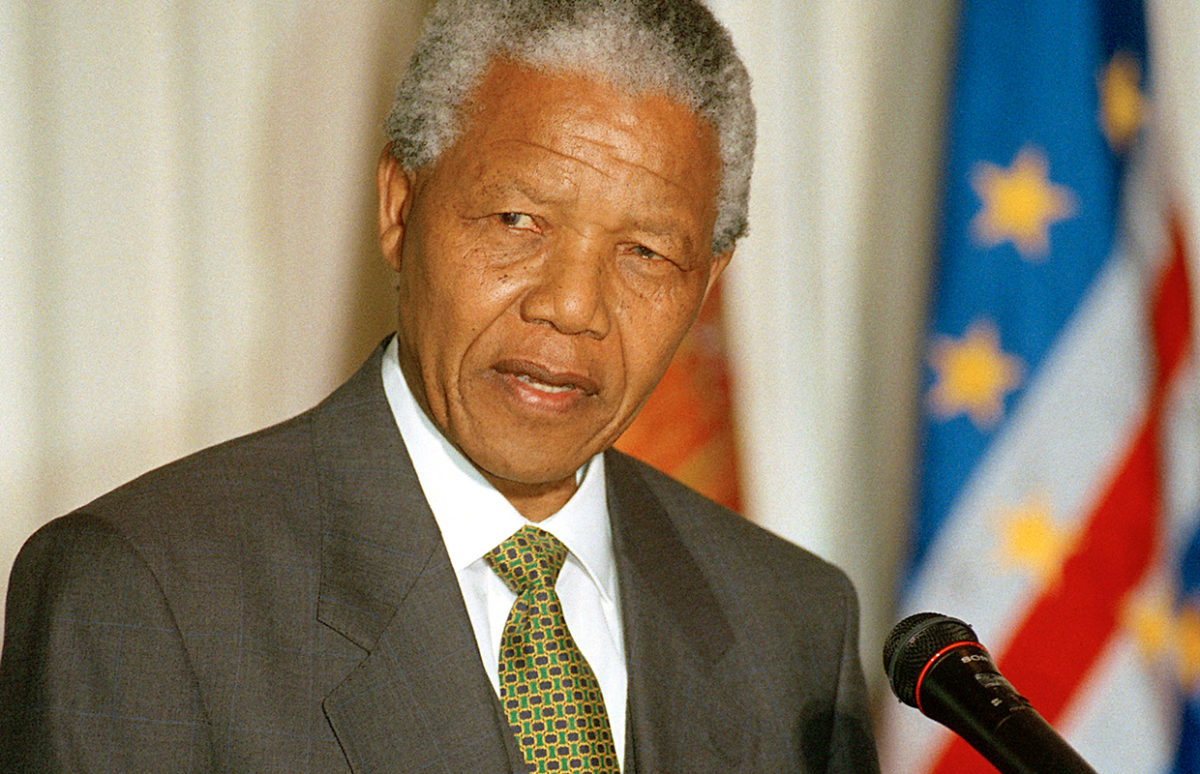Nelson Mandela was born a hundred years ago, on 18 July 1918. In 2009, the United Nations declared his birthday International Mandela Day, when people around the world are encouraged to give service to their communities, as he gave service to the people of South Africa.
Rolihlahla Mandela was born into the Madiba clan in Mvezo, Transkei, on 18 July 1918. The name he would become famous as, Nelson, was given to him by his first primary school teacher - it was standard practice in South Africa to give children European names. Thus the son of a Xhosa chief in South Africa bore the name of a British naval commander famous for his victories against Napoleon.
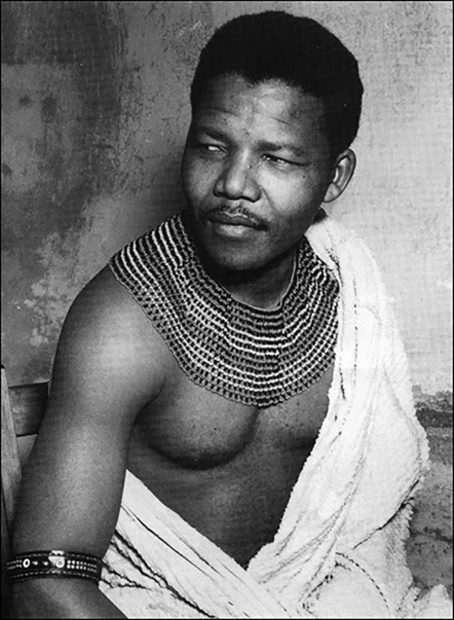
As a chief's son, Mandela had access to education, but when he started university he became involved in student protests against the treatment of the native Africans, and was expelled in 1940. Mandela got more and more involved in politics and in 1944 helped found the African National Congress Youth League. Despite being by his own admission a poor student, he continued his studies by correspondence, and later at Wits University. In 1952, he and his friend Oliver Tambo started the first black law firm in South Africa.
Apartheid
The situation for black South Africans had never been easy under colonisation but in 1948 it became much worse with the introduction of apartheid, formalising the de facto segregation. Every person in the country was classified according to colour and laws defined where they could live, study or use public amenities. Black South Africans were either forced to live in small "bantus" or tribal homelands - land which white landowners didn't want - or required permission to work in cities, where they had to live in segregated "townships" (ghettos by another name).
The ANC and other movements opposed apartheid and proposed a Freedom Charter:
We, the people of South Africa, declare for all our country and the world to know:
That South Africa belongs to all who live in it, black and white, and that no government can justly claim authority unless it is based on the will of the people.
This was considered treason by the government and in late 1955, 156 leaders of the Freedom Charter, including Mandela were arrested. After a mammoth five-year trial, they were ultimately acquitted in 1961.
Sharpeville
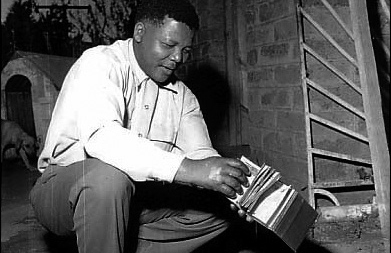 On 21 March 1960, the Sharpeville Massacre was a turning point for the anti-apartheid movement. Government troops opened fire on a non-violent demonstration against the Pass Laws that restricted non-Whites' movement, killing 69 and wounding 180. Furthermore, they outlawed opposition groups such as the ANC.
On 21 March 1960, the Sharpeville Massacre was a turning point for the anti-apartheid movement. Government troops opened fire on a non-violent demonstration against the Pass Laws that restricted non-Whites' movement, killing 69 and wounding 180. Furthermore, they outlawed opposition groups such as the ANC.
The ANC had always been a non-violent movement, following in the footsteps of Gandhi. But all forms of non-violent protest were now impossible. It decided to create a military wing, focused on sabotage of government buildings and infrastructure. Mandela became the first leader of Umkhonto we Sizwe.
Prison
In 1963, the secret headquarters of the movement, in Rivonia, were raided and the entire leadership was arrested and put on trial. All eight were sentenced to life imprisonment. For the seven black defendants, including Mandela, that meant the terrible Robben Island Prison.
Mandela spent 27 years in prison. The government offered to free him if he left the country, but he refused. He knew he was a symbol for the many people who opposed apartheid, in South Africa and the world. There were more and more protests in South Africa, and the government could only keep control by using more and more violence. Around the world, boycotts and massive protests showed support.
Freedom
Finally, in 1990, the South African president, FW de Klerk, realised that apartheid was untenable, and released Mandela and the other political prisoners. The ANC helped negotiate a new constitution, with equal rights for South Africans of all colours. Nelson Mandela and FW de Klerk were jointly awarded the 1993 Nobel Peace Prize . In April 1994, South Africa, "the Rainbow Nation", had its first democratic elections, and Mandela was elected president.
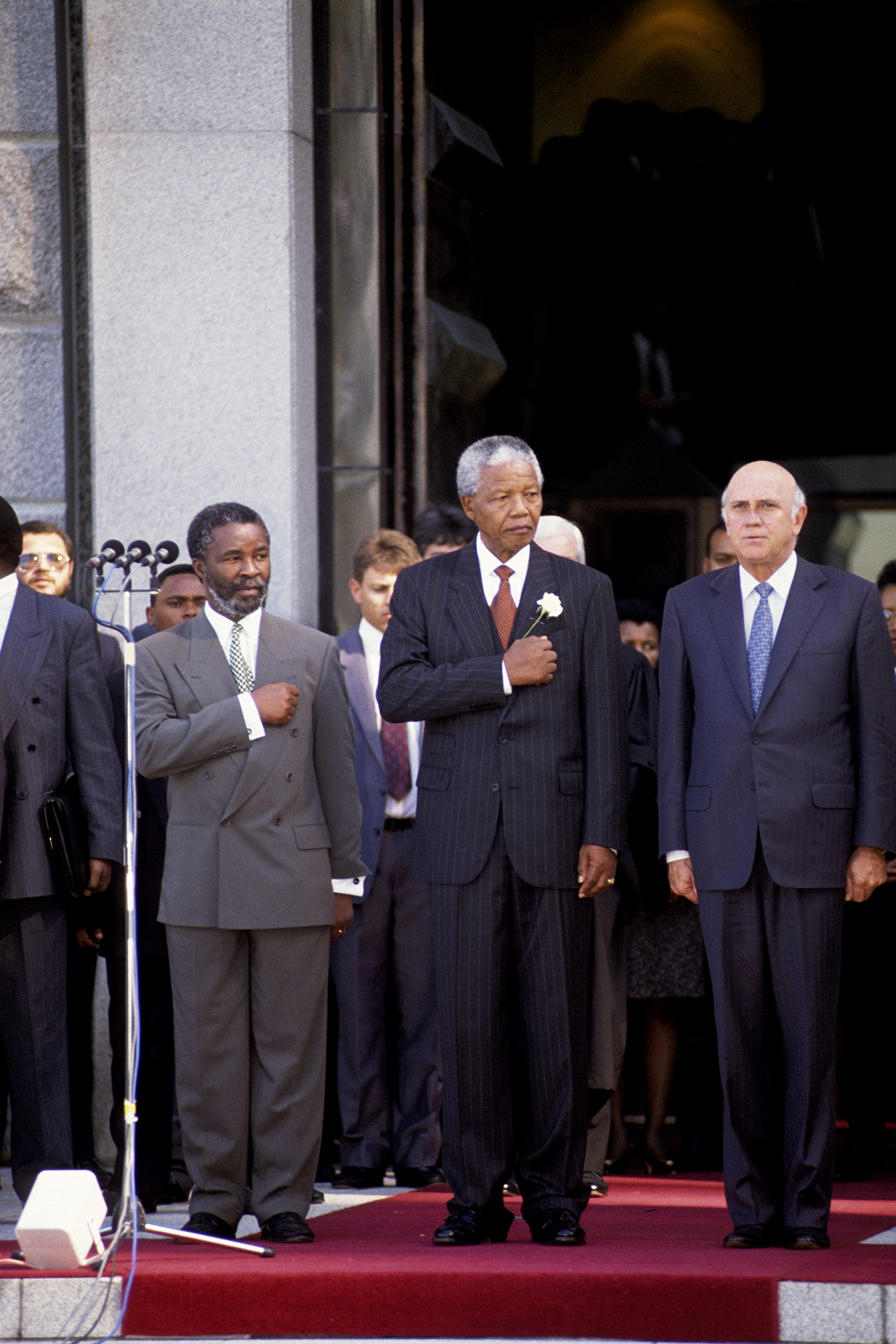
Nelson Mandela retired from politics in 1999 but he continued to work for peace and particularly to help children with AIDS until he died in 2013.
Legacy
A hundred years after his birth, South Africa is still struggling with poverty and violence. Despite the end of apartheid, economics often keep black people from attaining real equality. The ANC, in power since 1994, has become corrupt and not managed to deliver on its promises.
Yet, it must be remembered that at the point when Mandela was elected, few believed that there was any way for the country to transition peacefully. Many expected a bloodbath. Almost 25 years later, the country has problems, but it is functional. The Truth and Reconciliation Commission (1995-2002), which allowed perpetrators of violence under apartheid to talk about their actions, often in front of their victims, is considered a model which has been emulated in other divided communities around the world. Although Mandela himself always recognised a group effort for his achievements, he must be given credit.
Profoundly South African, Nelson Mandela also became an international figure, a hero to millions who never set foot in Africa. It is in that spirit that people around the world celebrate Mandela Day.
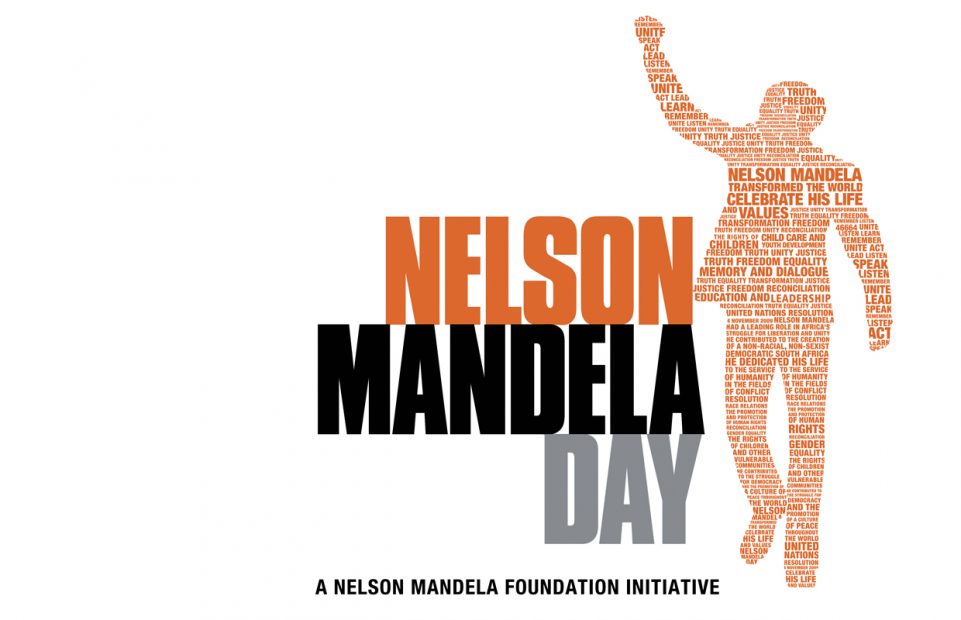
> Mandela Day Digital Resources
> Martin Luther King Day on the Web
> Nelson Mandela
> Martin Luther King Slideshow
Tag(s) : "apartheid" "biography" "civil rights" "Gandhi" "July" "Mandela Day" "Nelson Mandela" "prison" "South Africa"





